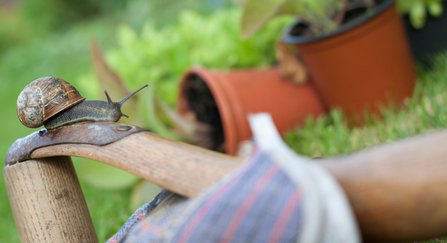In February, when the ground is hard and cold, it can be hard to remember what summer is like. But now is the perfect time to start planning and identifying what can be planted in your garden to benefit of both you and wildlife.
There are many simple ways to welcome wildlife into your garden whilst still being able to grow food. Companion planting, friendly pest control and organic repellents provide excellent ways for wildlife and growing vegetables to go hand in hand.
One big step towards growing vegetables and benefitting wildlife is to stop using chemical pesticides. These upset the natural balance of the environment and can kill everything from ‘pests’ (which are wildlife too) and their predators alike. By trying to be a bit more pest-tolerant we can allow natural predators to do the work for us.
Given good soil conditions and no water stress, crops will grow strong and healthy, and will be more resistant to pests and diseases. High-nitrogen fertilisers can encourage sappy, leafy growth that’s more vulnerable to attack. A compost heap is a fantastic animal-friendly, all-purpose soil improver.
Companion planting is all about creating areas of plants that provide benefits to each other. In practice, this means that plants that complement each other are placed together, and those that don’t, are kept apart. By planting ‘companion’ plants among other plants it can help them to grow by either attracting beneficial insects, and repelling others, or by acting as a sacrificial plant to lure hungry minibeasts away.


